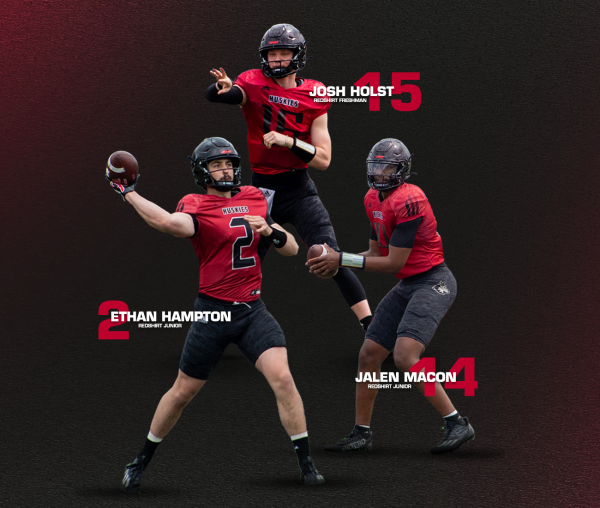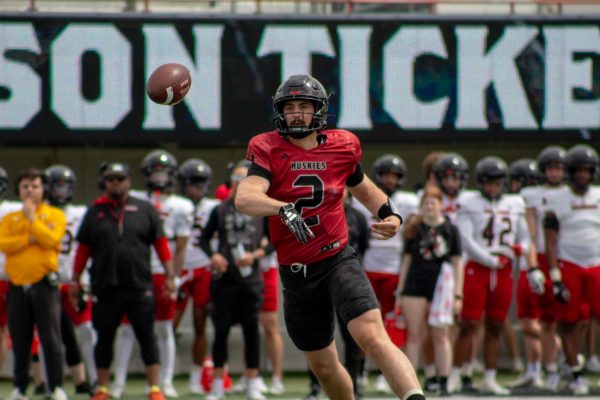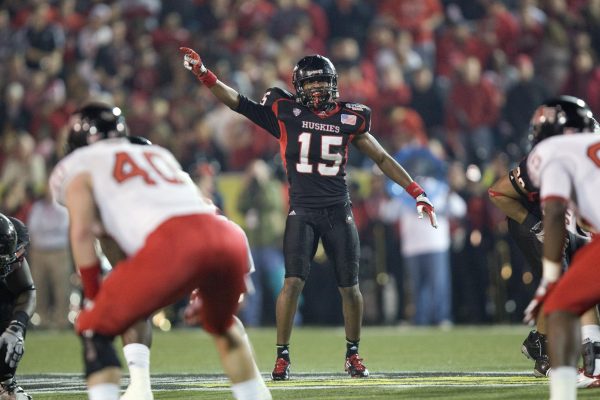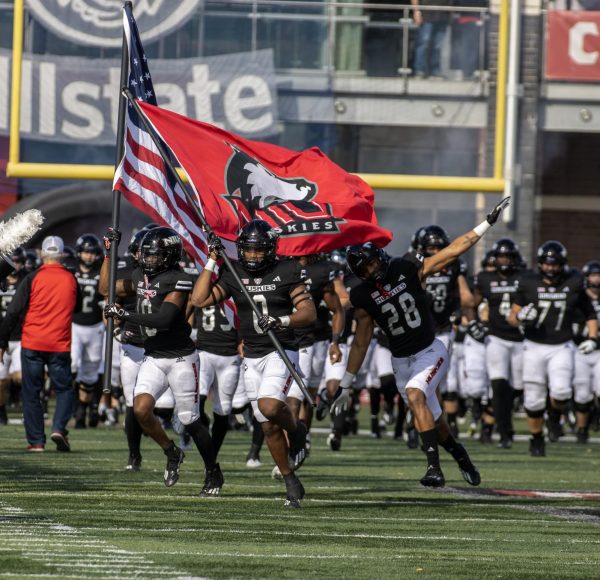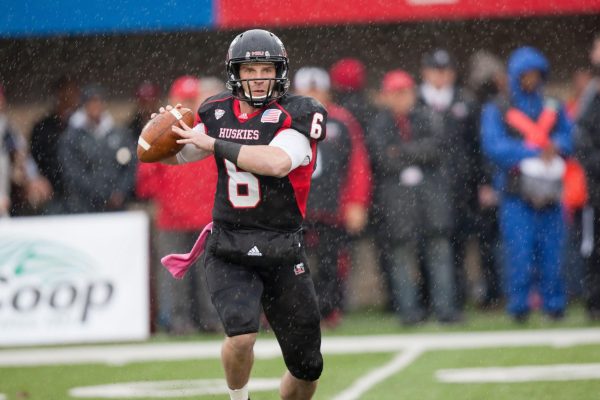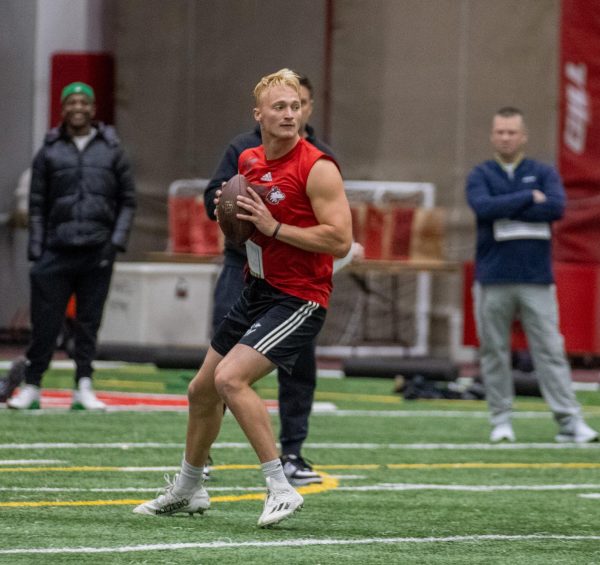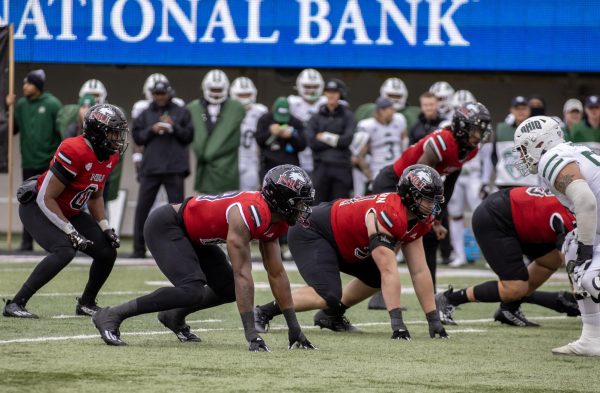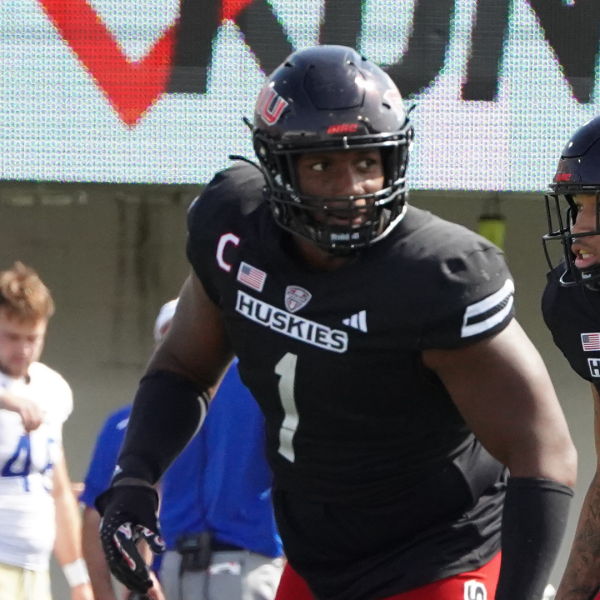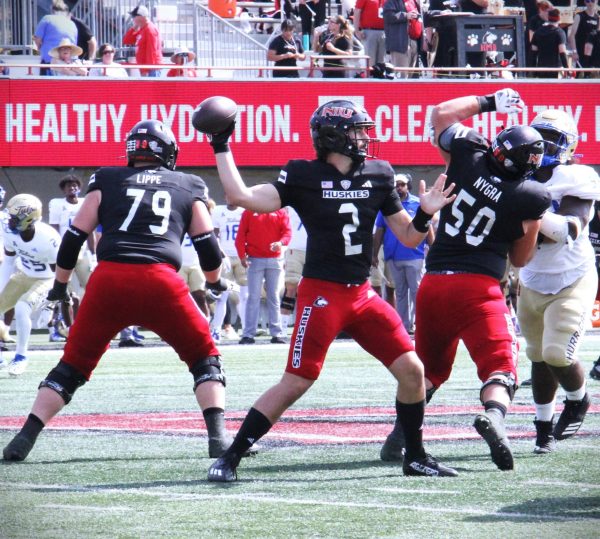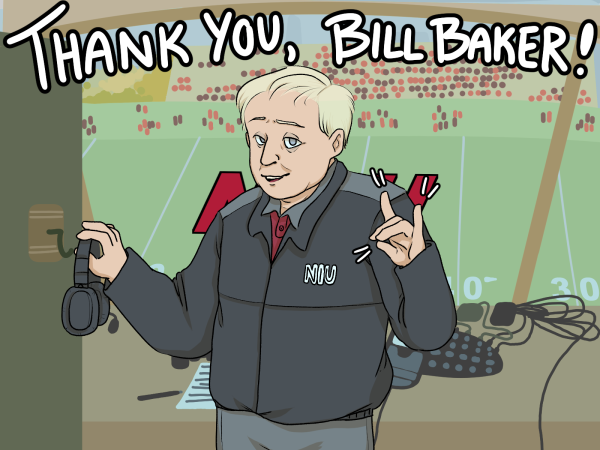Special Olympians deserve a fair game
January 29, 2009
I always hate being underdressed – it makes me so uncomfortable.
Yet there I was, in a white T-shirt, blue jeans and hiking boots. Actually, my shirt read “volunteer” across the back, but for the most part, it was white, especially when you compared it to the rest of the guests. They were wearing zebra jerseys, black slacks and dress shoes.
Yes, the crowd I was associating with was a bunch of IHSA referees. All of them were dressed for the occasion, while I was dressed for an afternoon hike.
But I did have one thing in common with the group – I had a whistle.
Maybe I should take you back a step. Last weekend the Byron Park District hosted a basketball tournament. Yet the courts weren’t filled with freshmen, college prospects or even middle schoolers. Instead, Byron hosted a Special Olympics event.
When registering as a volunteer, the committee asked if anyone had experience as a ref. While I’ve never refereed a game, I’ve watched enough basketball as a reporter. I know the difference between a charge and a blocking foul. So I threw my name into the pot.
Turned out I was the only volunteer to do so. In an odd coincidence, the only other volunteer referee didn’t show up.
So there I was, in my hiking boots, getting ready to call a basketball game.
I won’t lie – I think I was more nervous than the players. I had talked to my partner, Ron, about how we should call the game, asking plenty of questions.
Should we be counting 10 seconds to cross half court? Was a three-second violation fair game? What if someone had a hiccup in their step, would we call traveling for that?
We decided to call the game lightly. The only things we would be looking for were obvious travels (NBA rules), going out-of-bounds and jump balls. Yet, as the game started I got a feeling, a bad feeling. I was cheating these athletes from their game.
Interacting with people who have intellectual disabilities is nothing new for me. My brother is part of a program called “Best Buddies.” The group pairs students to intellectually disabled people with the goal of providing friendship.
My brother’s buddy, Adam, has a wicked sense of humor and an amazing knowledge of movies. I’ve learned from Adam that all he wants is to be treated like anyone else.
So as I was calling the game the way I would if a bunch of five-year-old kids were playing, I realized I was doing something wrong. Over 200 million people participate each year in the Special Olympics, and everyone expects a fair game.
As I came to this realization, a guard on the black team wrestled the forward on the blue team, throwing him violently to the ground. I blew my whistle so loud one of the coaches grabbed his ears.
This was my moment of redemption. I was ready to call the foul. I knew I wasn’t going to let anybody down this time. Ron had seen the same violation, blowing his whistle too. I didn’t know the exact call, so I deferred to the higher authority, knowing he knew what to do.
Except, he didn’t.
He stuck to our original rules. The obvious football tackle was pronounced a jump ball.
Fans, players and even coaches on both benches booed the call, and rightfully so. I, of course, was the ref on the bench side. For the next five minutes I had to tell both benches my call would have been entirely different in hopes of calming them down.
During halftime, Ron and I met and talked, as I can only imagine referees do. He told me about one of his granddaughters who has an intellectual disability. He knows how hard it is for her to go outside and play. All he wanted to do that day was to make sure everyone had a chance to do something “out of the norm.”
And that’s when I knew Ron and I had different perspectives.
These teams had been training for months. Most of the players had learned a skill or positions to make them crucial to their team’s success. Some were dribblers, taking the ball down the court. Others were rebounders, standing under the basket waiting for missed shots. And finally, there were shooters standing in the spot where they hit every jump shot.
These players came here to compete. I could hear it in their voices when I missed a call. They didn’t just want to do something “out of the norm.” They wanted to win.
I always hate being underdressed. It makes me all uncomfortable to stand out that way.
But as the day went on, how I looked became less important to me. I became more uncomfortable when I missed an out-of-bounds call or the one time I knew I should have called traveling, but decided to stick to NBA rules.
It didn’t matter how any of us looked; what mattered was that everyone deserved a fair game. Everyone deserved their day on the court.



